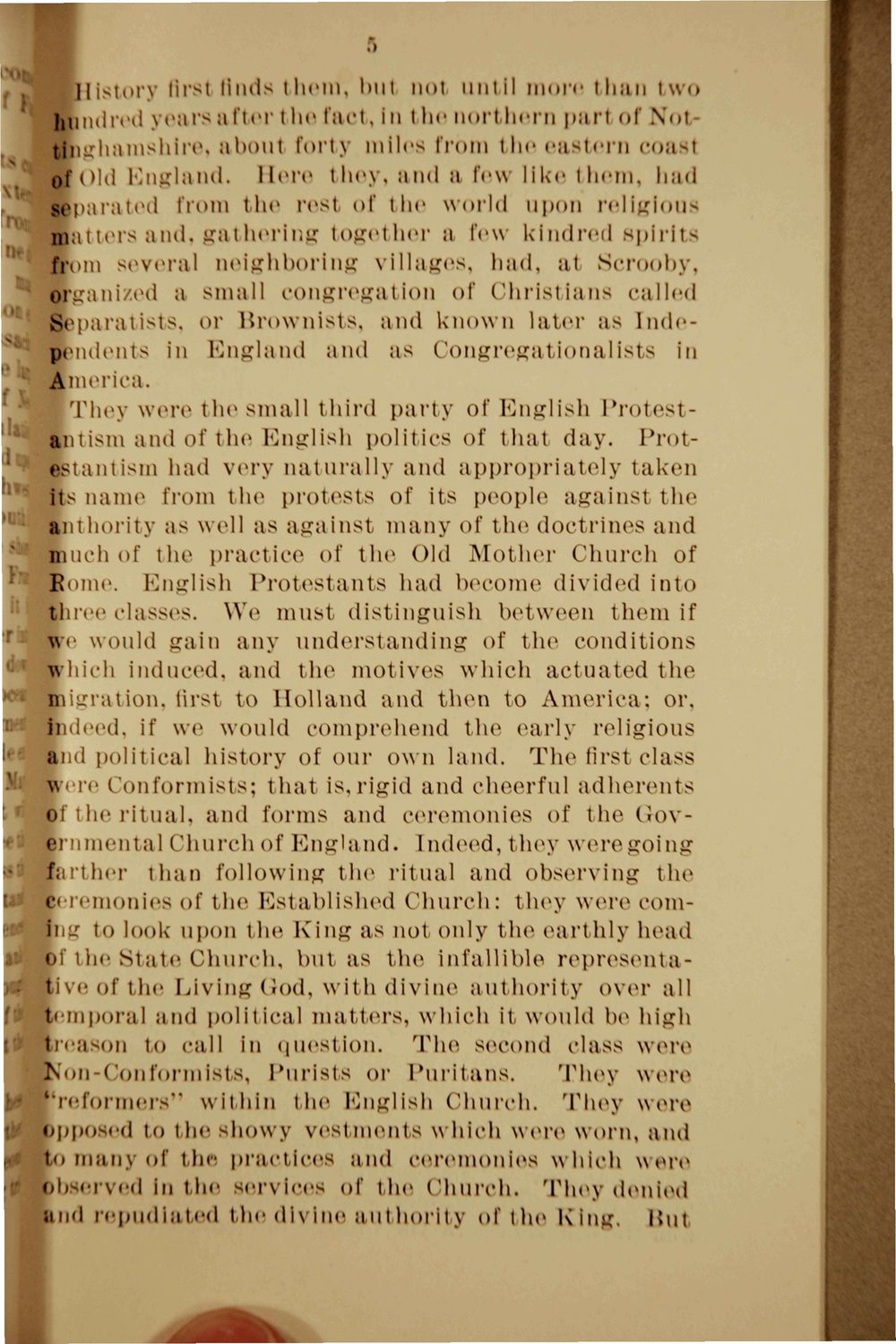| |
| |
Caption: Convocation - 1896 (Forefathers' Convocation)
This is a reduced-resolution page image for fast online browsing.

EXTRACTED TEXT FROM PAGE:
: > \ • • History first finds them, but not until more than tw< hundred years after the fact, In the northern part of Notr I tinu li;unshire, about fort> miles from the eastern coast of old England, Here they, and a few like them, had irated from the rest of the world upon religious matters and, gathering together a tew kindred spirits from several neighboring villages, had. at Scrooby, organized a small congregation of Christians called Separatists, ov Brownists, and known later as [ndependents in England and as Congregationalists In America. They were the small third party of English Protestii antism and of the English politics of that day. Protestantism had very naturally and appropriately taken hi- its name from the protests of its people against the n authority as well as against many of the doctrines and *•! much of the practice of the Old Mother Church of * Kome. English Protestants had become divided into three classes. We must distinguish between them if we would gain any understanding of the conditions which induced, and the motives which actuated the migration, first to Holland and then to America; or, indeed. If we would comprehend the early religious and political history of our own land. The first class \\ re Conformists; that is,rigid and cheerful adherents of the ritual, and forms and ceremonies of the Governmental Church of England. Indeed, they weregoing farther than following the ritual and observing the wBcenmnuiies of the Established Church: they were com* ihLT to look upon t he King as not only the earthly head of the State Church, but as the infallible representative of the Living God, with divine authority over all f temporal and political matters, which It would be high treason to call In question. The second class were Kon-Conformists, Purists or Puritans. They were i. reformers" within the English Church. They were opposed to the showy vestments which were worn, and &• to many of tin* practices and ceremonies which were oh rved in the services of the Church. They denied and r e p u d i a t e d t h e d i v i n e a u t h o r i t y of t h e K i n g . But f
| |